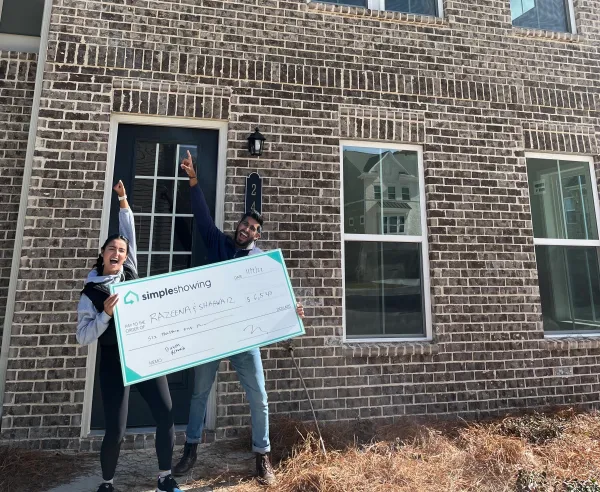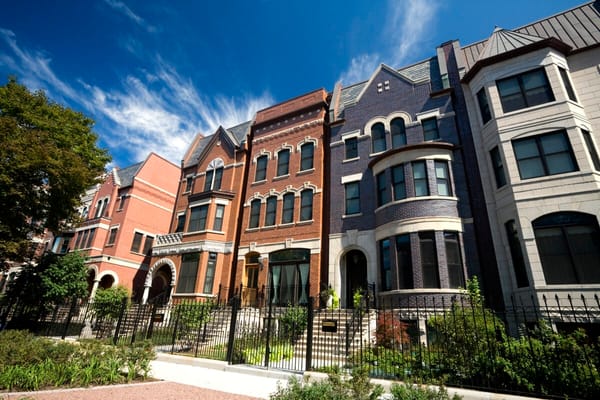Finding the perfect home involves something a little different for everyone, but the vast majority of house hunters will all have to go through the same step at some point: securing a mortgage.
Unless you’re going to pay for your house in cash, you’ll need to speak with a lender about securing a loan to help cover most of the cost.
For many of you, this will mean a conventional loan. While they’re fairly straight forward, picking a mortgage is such an important decision that you should understand what they entail now before you ever enter a lender’s office.
What Is a Conventional Loan?
A conventional loan refers to a mortgage that isn’t backed by the government.
Unlike FHA or VA loans – which we’ll touch on a bit later – conventional loans come from private lenders. Even though these private lenders have complete control over their loan requirements, those for down payments and incomes generally reflect the rules for Freddie Mac and Fannie Mae. Their loan limits also tend to fall in line with those set forth by the Federal Housing Finance Administration (FHFA).
Borrowers who are able to make a down payment of at least 20% aren’t required to buy mortgage insurance, either. The reasoning is that anyone who can afford that higher amount is probably not at risk of missing their mortgage payments.
Minimum Down Payments and Credit Scores for Conventional Loans
As they’re not backed by the government, conventional mortgages will almost always require larger down payments than FHA loans and others that carry less risk because government agencies guarantee their repayment.
Traditionally, this meant that private lenders demanded a down payment of up to 20%. However, this has changed recently, and many borrowers can now secure a mortgage with just 3.5% down.
There’s usually much less flexibility with credit scores, though. While every private lender gets to set their own requirement, a score of 620 is usually the minimum. For a good mortgage rate, the requirement is usually closer to 740.
Terms for conventional loans are 15, 20, or 30 years.
Aside from the down payment, borrowers usually need to pay for origination fees, appraisal fees, and, in cases where the down payment is under 20%, mortgage insurance.
All of these terms depend on the lender, though, which is why it’s always a good idea to shop around for your mortgage.
Conforming vs. Nonconforming Conventional Loans
There are actually two types of conventional loans: conforming and nonconforming.
Conforming conventional loans are the ones we mentioned earlier that conform to the guidelines set by Freddie Mac and Fannie Mae. The prime example of this conformity is how much a lender will offer for a conventional loan.
In 2020, Fannie May set the limit for a conforming conventional loan on a one-unit property at $510,400. Exceptions are made for Alaska, Hawaii, and the Virgin Islands, where the limit is set at $765,600. Therefore, if you apply for a conforming conventional loan, you should expect these limits to apply.
As the name suggest, nonconforming loans do not follow these kinds of guidelines. Nonconforming loans are meant for borrowers who wouldn’t otherwise qualify under those guidelines. One reason might be that the borrower wants more than the $510,400 or $765,000 limit. That’s why these loans are sometimes referred to as jumbo loans.
Other types of nonconforming conventional loans are designed for borrowers who would be considered “high risk.” This might be because of:
- Excessive Debt
- Poor Credit
- Recent Bankruptcy
It could also be that the borrower has their eyes set on a house with a high loan-to-value ratio.
Nonconforming loans tend to be more expensive because of these added factors. It’s not just that the government is backing them, though. It’s because this added risk makes it harder to sell the loans on the secondary market.
Conventional vs. FHA Loans
An FHA loan is an unconventional mortgage because it is backed by the Federal Housing Administration. So, while they are still offered by banks and private lenders, the FHA guarantees their repayment.
These loans are designed specifically for low-income borrowers or people with bad credit (you can qualify with a score as low as 500).
Nonetheless, they have competitive interest rates and may only require a down payment of 3.5%.
This is why borrowers almost always require mortgage insurance. It offsets the perceived risk of borrowing to people who otherwise probably wouldn’t qualify for a conventional loan.
Considering Other Alternatives to Conventional Loans
Aside from FHA loans, there are other alternatives to conventional mortgages.
For example, the VA offers a nonconventional loan. They’re often the absolute best option for those who qualify.
If you’re an active duty service member, a veteran, or the widow of someone who served, you could pay for your house with a VA loan. In most cases, you won’t need a down payment, mortgage insurance, or have to worry as much about your credit score. They almost always have lower interest rates than conventional loans, too.
No other lender – conventional or unconventional – is going to be able to match those kinds of terms.
So, again, it’s worth shopping around before deciding on a lender and type of mortgage. Even finding just a slightly better interest rate will make a massive difference in how much you owe.
Speak with a Real Estate Agent Before Applying for a Conventional Loan
There are a number of reasons that it might make the most sense to go with a conventional loan. Still, it’s best to speak with a real estate agent first before you make this important decision. Their years of experience will help you better understand all of your options, so you choose the one that will work best for your unique needs.
At SimpleShowing, we can connect you with an experienced agent in your area and one of our preferred lenders to get you the best loan for your situation. Plus, when you buy a home with our team, we'll give you $5,000 on average towards your closing costs with our Buyer Refund Program.
Contact us today to learn how to take advantage of this offer.
Conclusion
Understanding the ins and outs of a conventional mortgage loan is essential in making informed decisions on your home buying journey. This is particularly significant when juxtaposing a conventional mortgage with its widely known counterpart, the FHA loan. While the FHA loan can be more appealing due to a lower credit score requirement and smaller minimum down payment, it comes with its share of mortgage insurance premiums, which can potentially increase your monthly mortgage payments. Conversely, a conventional mortgage requires a higher credit score and larger minimum down payment, but it often comes with lower private mortgage insurance that can be removed after reaching a certain level of equity.
From a broader perspective, the Federal Housing Finance Agency sets the limits for conforming loans and jumbo loans. If your loan amount falls within these limits, you could potentially benefit from lower interest rates and a more streamlined approval process. However, if you're considering a jumbo loan, be prepared for stricter credit and debt-to-income ratio requirements.
At the end of the day, it's crucial to understand that the most suitable mortgage loan for you hinges upon your financial circumstances and long-term goals. Be it an FHA loan with a lower credit score and down payment requirements or a conventional mortgage with lower mortgage insurance premiums, the decision will significantly impact your monthly mortgage payment. Always strive to grasp the nuances of each loan type, particularly the details surrounding private mortgage insurance and mortgage insurance premiums, to ensure you're making the most financially sound choice for your future.






